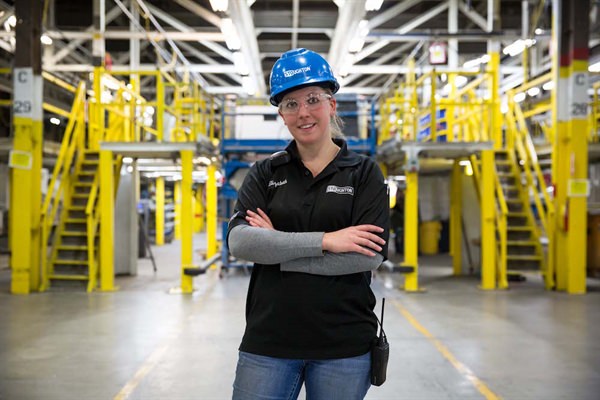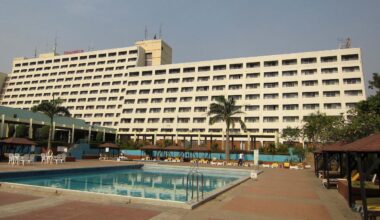A production supervisor is an individual who supervises the production process for a specific project, often with a team of people. They are employed by production departments to oversee and manage the logistics, personnel, and budget resources involved in bringing projects to fruition. Production supervisors may also be involved in pre-production processes as well as the post-production of their productions.
The work is not administrative but rather creative and involves project direction and decision-making. Because they work on various projects, production supervisors must possess knowledge of the various phases of production and be able to handle a wide variety of personalities. They must be able to motivate crews, think creatively, solve problems, and maintain coordination in a stressful environment.
Production supervisors work with producers, to whom they report on the progress of the project. They are generally involved with several projects at any given time and may move from one project to another as dictated by staffing needs or scheduling conflicts.
Duties of a Production Supervisor
The duties of a production supervisor are:
- Controlling the production process of a work by coordinating the activities of various employees
- Approving or rejecting decisions made by employees
- determining procedures for production, such as setting deadlines and selecting a final product to use.
- establishing schedule priorities that can gradually increase as demand increases.
- ensuring that project quality is met through strict adherence to criteria including budget, time frame, and materials used.
- Providing feedback on products in order to meet production goals or inform project changes before completing them (e.g., scheduling)
- Informing management of any potential problems or issues that may arise during production
- Recording any problems that occurred and what was done to solve them.
- Working with other departments to ensure the same quality is maintained in products produced by those departments.
- Working with employees to meet their own production goals and deadlines.
Responsibilities of a Production Supervisor
A production supervisor is responsible for the following tasks:
- provides leadership by planning, organizing, and executing production activities.
- oversees the efficient control of resources in a manner that meets customer requirements for quality, cost, and delivery.
- develops a comprehensive understanding of customer needs and matches those needs with outputs from their department.
- Ensure quality craftsmanship by evaluating worker performance.
- ensures compliance with all company policies to meet established standards.
Skills Needed to Become a Production Supervisor
The skills needed to become a production supervisor are:
- Leadership skills
- Planning and organizing skills
- ability to work under pressure
- Reliability and discipline
- Customer Service and Commitment
- Creativity
- Communication skill
If you’re on the hunt for an interesting new job title, “Production Supervisor” might just be the perfect fit! Read on to learn more about what it takes to work in this field.
Tools for Effective Production Supervision
As a production supervisor, here are the tools that can be used to get top-notch results:
Schedule
Productions can be scheduled for start, end, and duration. The production supervisor can also set up all tasks and see in real-time which ones are complete and which ones still need attention. This way, he or she is not waiting around to monitor a production’s progress through hours of constant emails between the director and the producer.
Cost control
We will use this tool in conjunction with the schedule to ensure that each task needed for a project has been ordered at the right cost per hour, day, or project. Managers will also track how many hours each task is taking so that they are able to maintain budget compliance without having to rely on an accountant on site every day.
Billing
This is important because you never know when a project or task may have been overlooked by the producers. This would mean that the production could even get delayed or missed altogether. It is also important for each person to be able to see who was responsible for what. This way everyone can be held accountable for their work and avoid any confusion about who is responsible for additional work that needs to be done.
Timetable for Release
All tasks will have release times, so production can plan accordingly with the start and end times of each task being completed. This way, they can plan their production schedule not only with each assignment but also with each crew member’s availability.
Job tracking and management
This is useful in ensuring that production is not wasting time on tasks that have already been completed. This will save a lot of time in the long run because, as it is now, people are relying on emails to figure out what everyone else has already done and then starting over on their own part of the work. It also keeps track of past projects so that production can refer back to them for future projects or clients.
Job sharing and management
This tool will be used to ensure the efficient use of resources. This means that the production manager or supervisor will be able to find out when jobs can be shared and when they cannot. For example, should a scene be reshot? Or should you go with the footage you have? Can this person do this job instead? This way, the production team will not waste hours or resources on a task that they do not need.
Screening room schedule
This tool is useful because it can hold its own database of screeners and their staff members, so it could make it easier for producers to see who is ready to screen a project and who still has work to complete on it.
Benefits of Being a Production Supervisor
As a production supervisor, here are some benefits to gain:
- Most production supervisors usually manage a team and have to ensure that they organize tasks and make sure the quality of their work matches the set standards.
- Production supervisors are also in charge of completing production on schedule, ensuring customer expectations are exceeded, and ensuring that the company is running efficiently.
- A production supervisor’s workspace is typically open, allowing them to observe their team while also keeping an eye on what is going on in the back office.
- Production supervisors do not have set hours as they usually work in shifts. For example, if a crew or staff team works from 5:00 a.m. to 7:00 p.m., their shift will be from 5:00 a.m. to 3:00 p.m.
- Production supervisors are able to motivate employees in order to ensure the success of their project, which involves dealing with issues that may arise.
Conclusion
Producers are employed across many industries, as they are needed in every sector of production. There is a growing need for producers due to the increased quantity of goods being produced and shipped at lower costs. Producers usually work with a team of people that is led by a project manager.
Many production supervisors in the motion picture industry are very experienced, and they may even have a college degree in film. They are usually put into positions in their company after several years of experience and with a number of projects under their belt. Some production supervisors for television may even be qualified for executive positions within their company as well as at a level above them.
Frequently Asked Questions
What level is a production supervisor?
management-level employee
A production supervisor is a management-level employee in charge of overseeing the production staff at a company. The production supervisor’s core responsibility is managing production processes and staff and ensuring that the process is as efficient as possible without sacrificing employee safety.
What is another name for production supervisor?
The Project Manager
Or sometimes they call it the production manager.
References
- https://www.getreskilled.com/what-is-a-production-supervisor/
- https://resources.workable.com/production-supervisor-job-description
- https://www.betterteam.com/production-supervisor-job-description






